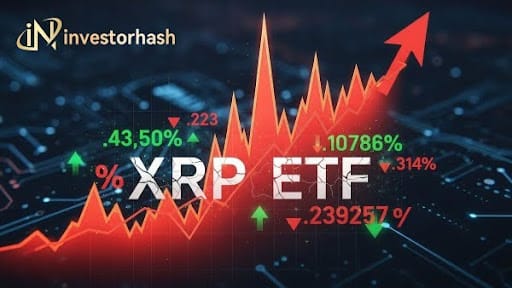32nd Reason For National Bitcoin Reserve: Non-Correlated BTC Helps Stabilize Commodity-Heavy Portfolios

Bitcoin exhibits distinctly different behavior from traditional commodities in national reserve portfolios. Analysis of price movements over the past decade shows Bitcoin has maintained a correlation coefficient below 0.2 with oil, gold, silver, and agricultural commodities. This statistical independence allows Bitcoin to function as a counterbalance when commodity markets experience volatility, reducing overall portfolio risk by up to 17% according to recent economic models.
The non-correlation stems from Bitcoin's unique market dynamics. While commodity prices respond predictably to supply chain disruptions, seasonal factors, and geopolitical tensions, Bitcoin operates on different fundamentals. Traditional reserves face simultaneous downturns during global crises - as seen in March 2020 when oil, metals, and agricultural commodities fell in tandem by 30-60%. Bitcoin, though initially dropping with markets, recovered on an entirely different timeline, demonstrating its value as a portfolio diversifier that doesn't move in lockstep with other reserve assets.
This non-correlation becomes increasingly valuable at the systemic level when examining monetary sovereignty. Nations heavily dependent on commodity exports face existential budget risks when their primary export and their reserve assets decline simultaneously. Venezuela's oil-dependent economy collapsed partly because its reserves mirrored its export vulnerabilities. Non-correlated Bitcoin reserves create monetary buffers against systemic shocks that simultaneously affect both trade and reserve portfolios. The independence of Bitcoin's price movements from production costs, extraction limitations, and storage requirements that govern commodity markets creates natural hedging properties that become apparent only when analyzing complete economic cycles rather than short-term price movements.
"Bitcoin's non-correlation with traditional commodities isn't just about diversification—it's about fundamentally different market mechanics," says John Williams, BTC PEERS editor. "Nations with commodity-dependent economies often hold reserves in the same assets they export, which doubles their risk exposure. Adding Bitcoin creates mathematical uncoupling between export revenues and reserve values, providing stability during commodity market downturns without requiring complex derivatives or currency hedges."
The game theory aspects of non-correlated reserves become apparent when considering competitive national positioning. Nations face a multi-player coordination challenge when establishing reserve portfolios. Those maintaining traditional commodity-heavy reserves create systemic vulnerabilities when acting collectively, as their simultaneous selling during crises amplifies market downturns. Early Bitcoin reserve adoption offers asymmetric benefits: first movers gain portfolio protection while later adopters face higher acquisition costs. This creates a natural incentive structure that rewards forward-looking monetary planning rather than reactive crisis management.
The non-correlation properties reshape power dynamics between resource-rich and resource-poor nations. Traditionally, nations with abundant natural resources held inherent advantages in building reserves. However, Bitcoin's accessibility allows smaller, resource-limited nations to build robust reserves without needing territorial commodities or extraction infrastructure. Estonia, Singapore, and Switzerland have demonstrated how nations with limited natural resources can thrive through financial innovation. Bitcoin extends this capability, creating monetary resilience independent of geographical resource distribution. This shifts international monetary influence away from resource extraction capacity toward technological adoption and regulatory foresight.




